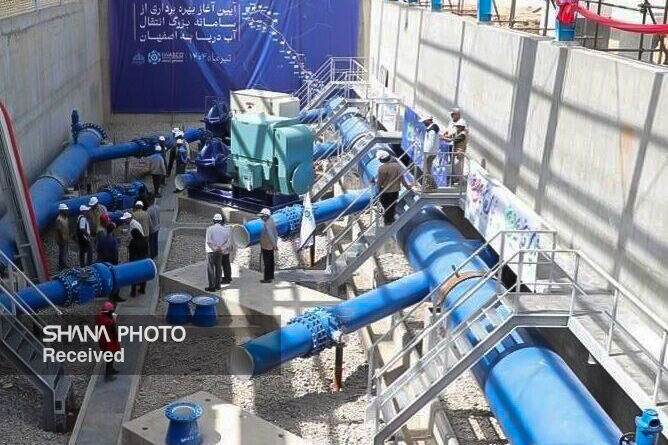Gholamreza Baqeri-Dizaj said the project, one of the refinery’s most critical initiatives, is designed to ensure a stable water supply for major industries in the province, particularly under worsening water scarcity conditions.
He noted that given Isfahan’s unique geography and repeated droughts, the issue of securing industrial water has long been under review. The establishment of a water transfer company, jointly owned by major provincial industries, paved the way for accessing more sustainable resources such as water from the Sea of Oman.
The seawater transfer initiative is being developed in two phases. The first phase includes a 339-kilometer pipeline branching from the Wasco line, spanning 240 kilometers along the northern route and 219 kilometers along the southern route. The northern route currently delivers water to the Isfahan refinery, where the trial operation is underway. This phase is expected to provide the refinery with approximately 700,000 cubic meters of water each month.
Major step toward industrial water security
Emphasizing the importance of consistent and reliable production, Baqeri-Dizaj stated that Isfahan refinery is the first industrial site in the province to utilize seawater. "With the implementation of this transfer project, one of the most significant challenges facing Isfahan’s industries — water scarcity — will be addressed. There is now capacity to meet the water needs of various industries through this source,” he said.
He also stressed that the project has been carried out with full adherence to environmental standards. Pumping stations have been successfully installed and are now operating on a trial basis. Given the strategic importance of seawater, the official said that the refinery continues to prioritize maximizing recycled water use, wastewater treatment, and implementing water-saving measures. The use of seawater, he added, is considered a secure and essential resource for sustaining industrial and refining operations while reducing reliance on municipal water supplies.
Regarding the second phase of the project, Baqeri-Dizaj explained that it will involve laying roughly 400 kilometers of new pipelines and installing the necessary equipment to supply water directly from the Sea of Oman. Design work for this phase has been completed, and implementation will begin once financial resources are secured.


Your Comment